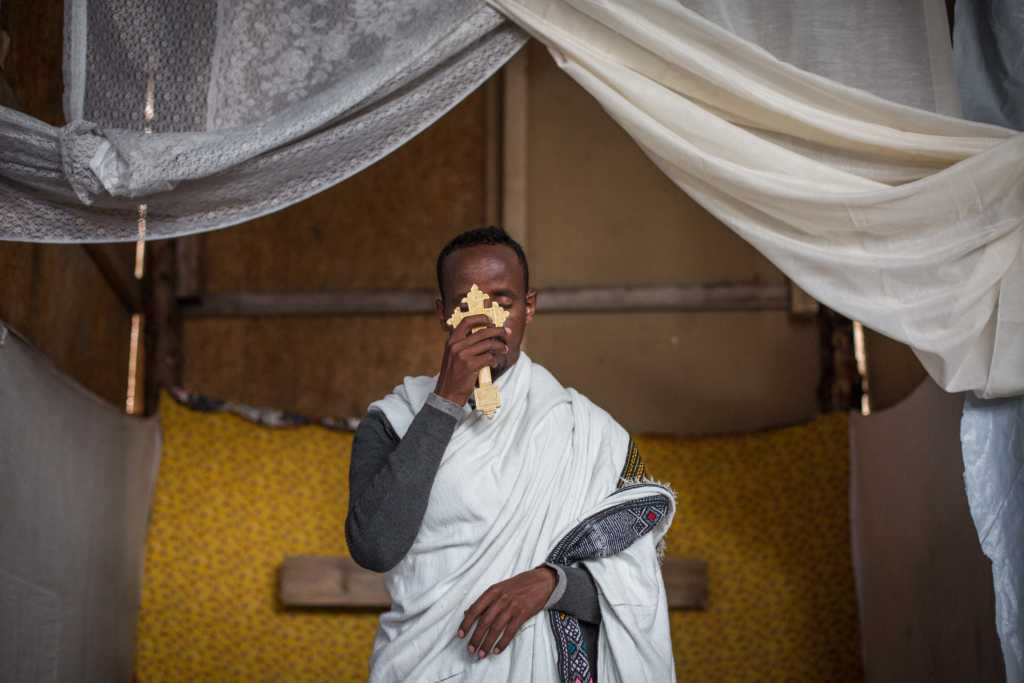The Eritrean government has continued its brutal crackdown on Christianity by enforcing a blanket closure on faith-based health facilities.
The United Nations reported that government officials not only demanded the immediate closure of these essential treatment centers but also posted soldiers outside the facilities to enforce the action. Witnesses noted that the military personnel were threatening staff and ordering patients to go home.
“These actions show that, despite the improved regional climate for peace and security, the human rights situation in Eritrea remains unchanged”, said Daniela Kravetz, the UN’s Special Rapporteur on the situation of human rights in Eritrea.
Kravetz added that the seizure of these vital health facilities “will negatively impact the right to health of the affected populations, in particular those in remote rural areas.”
She noted: “By curtailing the activities of the Catholic Church, the Eritrean authorities are restricting the right of their citizens to enjoy quality health care.”
The Catholic Church operates around 40 hospitals and health centres across the embattled nation, with most providing free services to impoverished civilians since the 1990’s.
Following the government’s latest move of oppression, the Catholic Church renewed its calls for further dialogue on peace and reconciliation in Eritrea.
International Christian Concern, a persecution watchdog which aims to shed light on the oppression of Christians across the globe, told Faithwire that this sort of brutal action is nothing new for the Eritrean government.
The fierce anti-Christian oppression is nothing new
“For decades, they have exacted heavy handed measures against anything they deem as foreign or interfering with their national security,” ICC’s Regional Manager for Africa, Nathan Johnson, told Faithwire. “This is just another act of tyranny and control by the Eritrean government.”
Johnson noted that the crackdown on church-run medical facilities
was an “act of aggression that shows that Eritrea has no respect for freedom of religion.”
“These health clinics that were run by the Catholic community were in many cases the only option for poor Christian families,” Johnson explained. “The government-run facilities are much more expensive than the often free Catholic clinics. They are also of much poorer quality.”
Elderly priests detained
In addition to the closing of healthcare facilities, it has been reported that on 13 June, security forces arrested five Orthodox priests from the Debre Bizen monastery for opposing Government interference in Church affairs. Three of those detained were over 70-years-old.
How heavily persecuted is Eritrea?
Eritrea, though relatively underreported, is one of the most restrictive places on earth in which to live as a Christian. Open Doors USA ranks the East African nation as the seventh most persecuted country in the world.
“Christians are being forced to join the armed forces, and Protestants, in particular, face serious problems with accessing community resources, especially social services provided by the state,” the charity notes in a fact-sheet.
Both converts from a Muslim background and cross-denominational converts from an Orthodox background encounter harsh mistreatment from their families and communities.”
The Eritrean government has been at the center of a widespread human rights crisis in recent years, detaining any person who dares disagree with the ruling party. Though a peace deal with neighboring Ethiopia has helped, the population still remains in the grip of the totalitarian government.
“There was hope that when Ethiopia and Eritrea mended relations, that the country would become a bit more free,” Johnson told Faithwire. “This has not happened.”
He added: “There have been multiple occasions since then that the government has cracked down on groups meeting to pray and worship. There have been many mass arrests over the past 20 years since this government turned completely hostile to religion. Thousands of Christians remain in captivity without charges because the government, led by Isaias Afwerki, is paranoid about Western intervention.”
Johnson said that, as a result of the continued persecution, Eritrean Christians are being forced underground at an alarming rate.
The Roman Catholic Church, Lutheran Church, Eritrean Orthodox Church, and Sunni Islam are all permitted by the state. They are however, heavily regulated by a set of governing rules.
According to ICC, if you want to join one of these religions, you must adhere to these four simple criteria:
“1: You cannot be a born again Christian.
2: You’re loyal to the government, and no one else.
3: You will not carry the Bible outside of your home or church building.
4: If you find any missionaries, you will report them to the police. When you do, you will receive three months’ worth of money.”
Ms. Kravetz is due to share her extensive findings at the Human Rights Council in Geneva on July 2 in order to highlight the severity of the situation in Eritrea. “I urge Eritrea to live up to its international commitments as a member of the Human Rights Council,” she said, imploring the government to “allow religious institutions to operate freely and all Eritreans to exercise their right to freedom of religion within the country.”
Do continue to pray for all those who continue to face oppression because of their faith in Christ.



